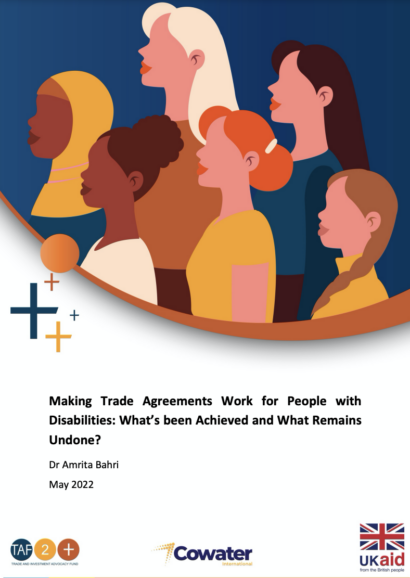
Using the experience and understanding of working with trade and gender in the previous years, the author of this study seeks to spark discussion and dialogue on how trade agreements can be made to work for and protect the interests of persons with disabilities. To achieve this purpose, the study first provides a discussion on the barriers that hold back persons with disabilities from being economically empowered and having access to economic opportunities. It then clarifies the inter-relationship between trade agreements and people with disabilities. Building on this conceptual foundation, the study then assesses the existing trade agreements to identify and review those provisions that can directly or indirectly be employed to benefit and connect people with disabilities to opportunities offered by international trade. It concludes by proposing some policy recommendations for the future on-boarding of disability-related concerns in trade agreements.


